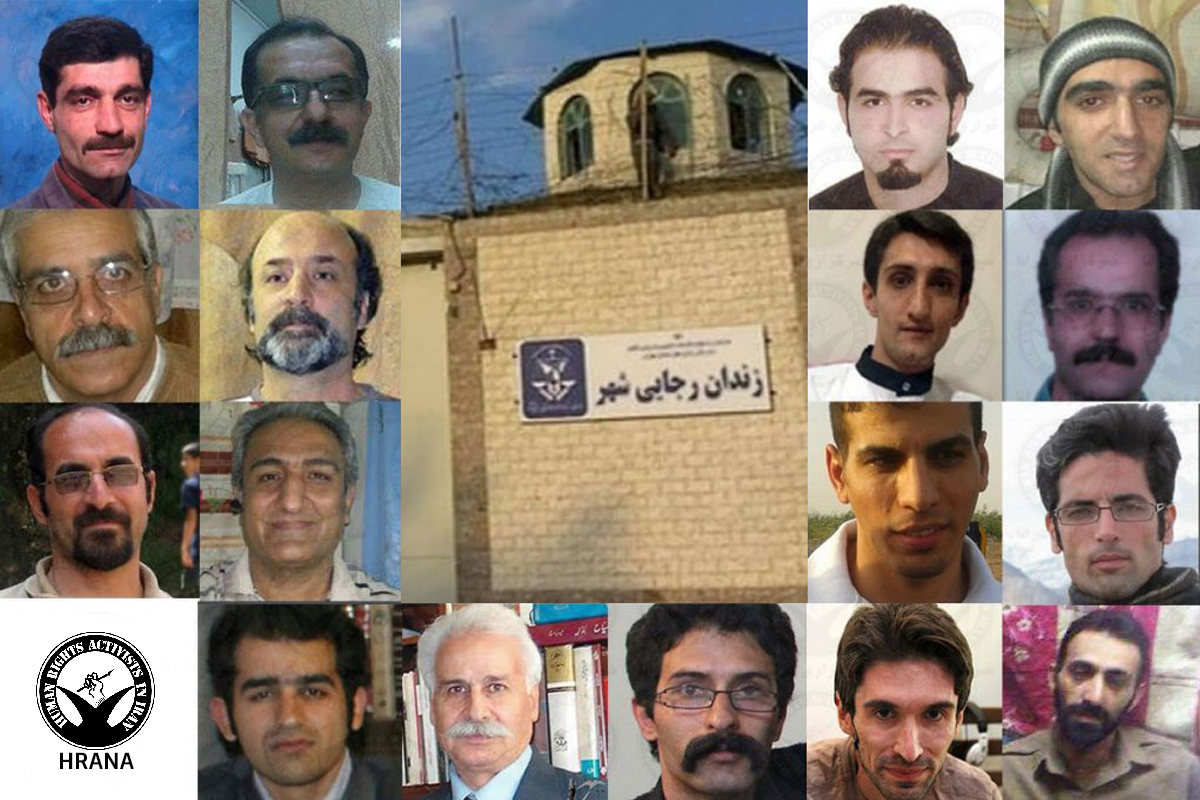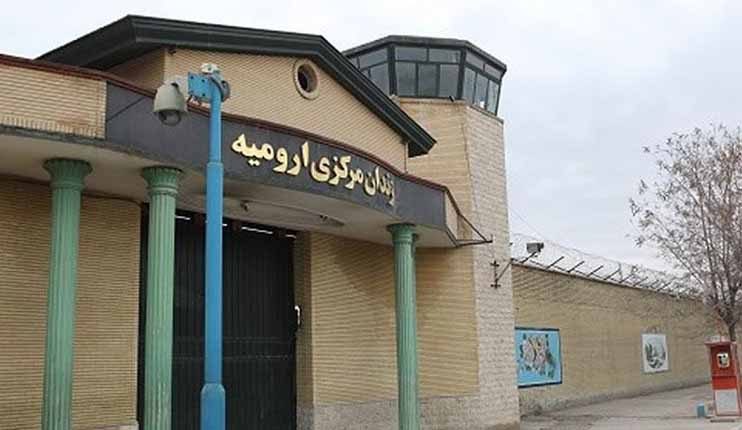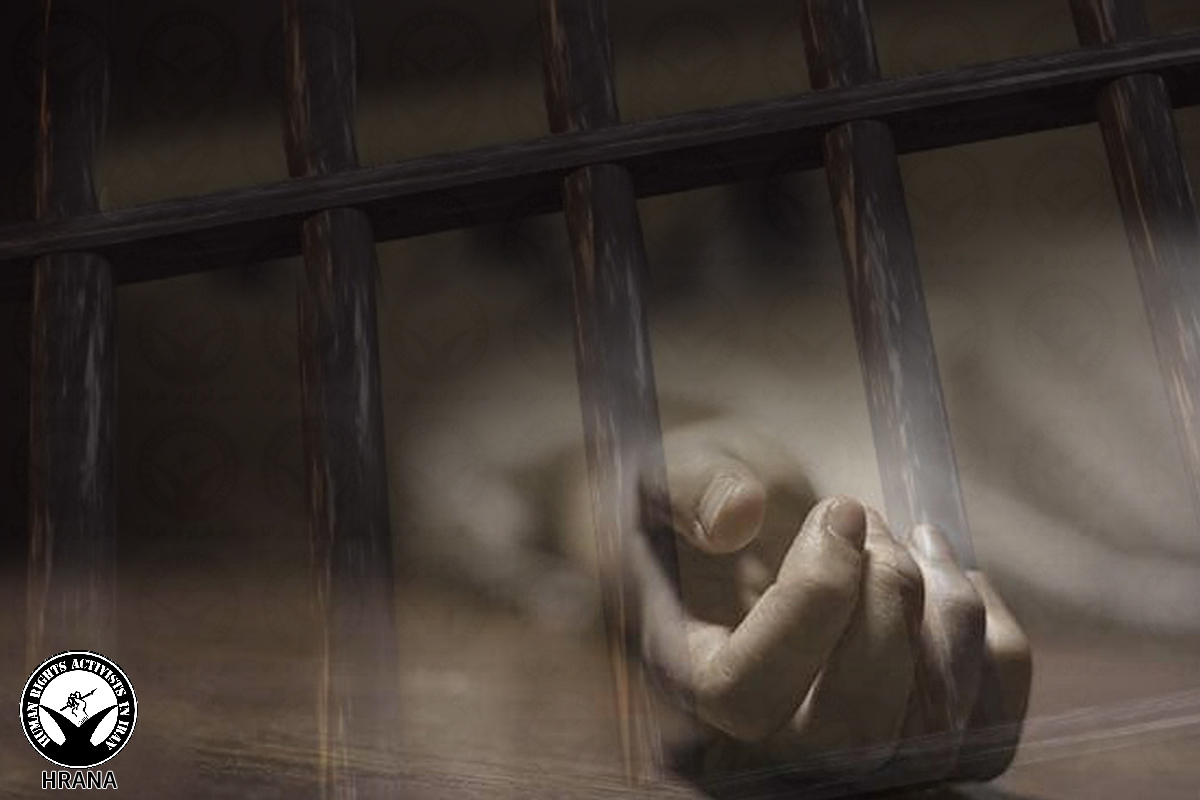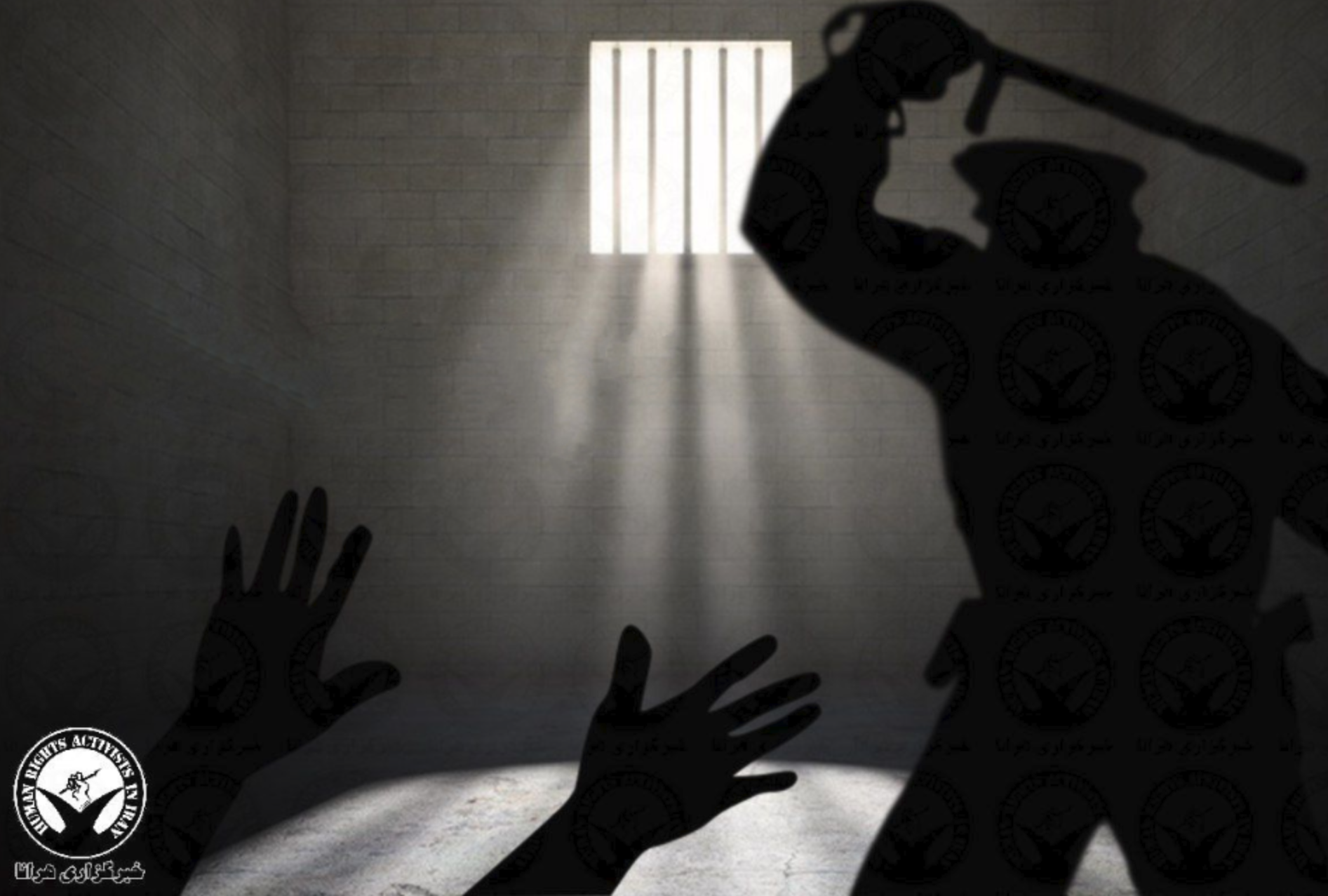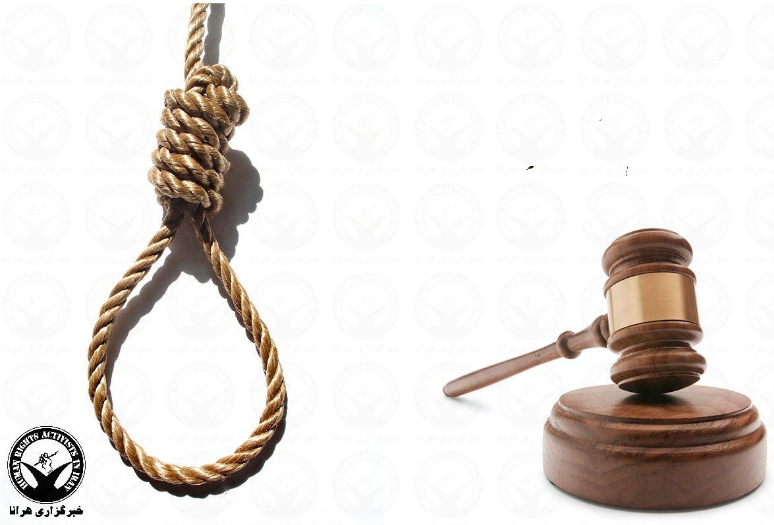Human Rights Activists News Agency (HRANA)- This past August, Rajai Shahr Prison authorities ordered the transfer of political prisoners to Ward 10, where prisoners’ already-tight rations on climate control, fresh air, and nutrition have reportedly been cut even slimmer.
It is a running suspicion that prison authorities seek to dismantle the political ward, breaking down these prisoners’ spirits so that they will be more amenable to being dispersed among different wards.
Ward 10 currently houses 18 prisoners charged with political and security-related crimes. Four more political prisoners are being held in lateral sections. Of these 22, seven are in need of medical care.
A cold chill is already creeping through the walls of the hillside prison, boding the incoming flu season from which political prisoners stand unprotected, a close source told HRANA. “The need for heating equipment is felt all across the prison, but on [Prison Head] Gholamreza Ziayi’s orders, the political prisoners can’t have access to heaters. While prisoners pay for heaters out of their own pockets, the director has forbidden their delivery or use in the political ward.” Prison authorities have reportedly even gone as far as banning heaters in common areas that political prisoners might flock to for refuge, i.e. the prison library, gym, or store.
A letter underlining the dire need for climate control addressed to Ziyai from a previous prosecution assistant responsible for overseeing prison affairs, did nothing to change his mind, the source said.
Political prisoners got the brunt of the opposite heat extreme this past summer when they were denied access to any form of a cooling system. While their repeated requests managed to obtain three refrigerators for the ward, Ziyai underlined that they would have access to more equipment and amenities if they requested to be transferred to different wards.
Political detainees have thus far held fast to regulations requiring prisoners charged with different offenses to be housed in separate wards. Their resistance against integrating with prisoners accused of petty theft, drug-related crimes, or violent offenses has contributed to continued daily frictions between authorities and their cohort.
Meanwhile, the assessment of food provided to these political prisoners is even more scathing than the Rajai Shahr usual. Sources say that prisoners eat vegetarian by default, limited to plain rice with soy or lentils at lunchtime. Though the dinner menu promises to be more substantial — bean or lentil stew, or Ash [a thick Iranian soup] — sources say that the dishes hardly live up to their names, and prisoners in the cohort are rarely, if ever, served produce.
Deprivation of fresh air is also being leveraged against them, sources say. The regular 2-to-5:30 recreation period previously enjoyed by political prisoners in mixed groups has been eliminated entirely since their transfer to Ward 10. “Fresh airtime has been denied [to them] on direct orders from Ziayi, despite the fact that the recreation area is empty between 10 a.m. and 2 p.m.”, an anonymous source said.
Warden and Internal Director Vali Ali Mohammadi has abdicated from addressing prisoners’ complaints, stating that he defers to the authority of Ziayi and his secretary/chauffeur. “In other words,” a source said, “the slightest request, like for food or stationary, has to pass by Ziayi and his secretary.”
Though seasoned in-group attrition tactics, authorities at Rajai Shahr have not shied away from more targeted brutality to get their point across. Multiple sources have reported aggressive body searches, harassment and verbal abuse of prisoners’ families, and the placement of arbitrary, extreme restrictions to wear down individual inmates. In one such instance, Supervising Prosecution Assistant Rostami placed a long-term prohibition on visits between Hassan Sadeghi and his imprisoned wife; in another, medical attention to the bone cancer and infected surgery site of Arash Sadeghi were repeatedly postponed and denied. Deprivations like Sadeghi’s may become more widespread: two weeks ago, an official prison order came into effect, invalidating all approved transfers of ailing prisoners to [outside] medical facilities.
The respective situations of a number of Rajai Shahr prisoners of conscience are compiled in the lists below
1. Majid Assadi, accused of assembly and collusion [against national security]. Arrested in 2016, sentenced to 6 years. Anticipated release date: 2021. Has been incarcerated for two years without furlough.
2. Afshin Baimani, accused of Moharebeh [enmity against God] through cooperation with the MEK. Arrested in 2000, sentenced to life. Currently in 18th year of incarceration without furlough.
3. Mohammad Banazadeh Amirkhizi, accused of being a MEK sympathizer, and of assembly and collusion against the regime. Arrested on 2016, sentenced to 11 years. Anticipated release date: 2027. Has been incarcerated for two years without furlough.
4. Ebrahim Firouzi, accused of assembly and collusion and propaganda against the regime. Arrested in 2013, sentenced to 7 years. Anticipated release date: 2019. Currently in 5th year of incarceration without furlough.
5. Abolghassem Fouladvand, accused of Moharebeh through supporting the MEK. Arrested in 2013, sentenced to 15 years. Anticipated release date: 2028. Currently in 5th year of incarceration without furlough.
6. Gol Mohammad Jonbeshi, accused of cooperation with the Taliban. Arrested in 2016, sentenced to 3 years. Anticipated release date: 2019. Currently in 2nd year of incarceration without furlough.
7. Latif Hassani, accused of forming an illegal group to act against national security. Arrested in 2012, sentenced to 8 years. Anticipated release date: 2020.
8. Saeed Massouri, accused of Moharebeh through membership in the MEK. Arrested in 2000, sentenced to life. Currently in 2nd year of incarceration without furlough.
9. Mohammad Ali (Pirouz) Mansouri, accused of Moharebeh through support of the MEK. Arrested on 2007, sentenced to 22 years. Anticipated release date: 2028. Currently in 11th year of incarceration without furlough.
10. Asghar Pashayi, accused of espionage. Arrested in 2008, sentenced to 10 years. Anticipated release date: 2018. Release pending his payment of a fine. Currently in 10th year of incarceration without furlough.
11. Farhang Pourmansouri, accused of hijacking a plane. Arrested in 2000, sentenced to life. Currently in 18th year of incarceration without furlough.
12. Shahram Pourmansouri, accused of hijacking a plane. Arrested in 2000, sentenced to life. Currently in 18th year of incarceration without furlough.
13. Houshang Rezaei, accused of Moharabeh through membership in Komele [Kurdish opposition group]. Arrested in 2010, sentenced to death. Currently in 8th year of incarceration without furlough.
14. Arash Sadeghi, accused of propaganda against the regime, assembly and collusion, insulting the supreme leader, and disseminating lies. Arrested in 2016, sentenced to 11.5 years. Anticipated release date: 2027. Currently in 2nd year of incarceration without furlough.
15. Hassan Sadeghi, accused of Moharebeh through cooperation with the MEK. Arrested in 2013, sentenced to 11.5 years. Anticipated release date: 2028. Currently in 5th year of incarceration without furlough.
16. Hamzeh Savari, accused of moharebeh and acting against national security. Arrested in 2005, sentenced to life. Currently in 13th year of incarceration without furlough.
17. Payam Shakiba, accused of assembly and collusion against national security and propaganda against the regime. Arrested in 2016, sentenced to 11 years. Anticipated release date: 2027. Currently in 2nd year of incarceration without furlough.
18. Saeed Shirzad, accused of assembly and collusion against national security, damaging prison property, and disrupting prison order. Arrested in 2014, sentenced to 6.5 years. Anticipated release date: 2020. Currently in 4th year of incarceration without furlough.
Baha’is incarcerated in Ward 11:
1. Vahed Kholousi, accused of assembly and collusion against national security, Baha’i membership, activism, and proselytizing, propaganda against the regime, and activism in defense of Baha’i student rights. Arrested in 2015, sentenced to 5 years. Anticipated release date: 2020. Currently in 3rd year of incarceration without furlough.
2. Afshin Seyyed Ahmad, accused of assembly and collusion and propaganda against the regime. Arrested in 2016, sentenced to 3 years. Anticipated release date: 2019. Currently in 2nd year of incarceration without furlough.
3. Farhad Fahandoj, accused of Baha’i proselytizing and involvement in Baha’i associations. Arrested in 2012, sentenced to 10 years. Anticipated release date: 2022. Currently in 6th year of incarceration without furlough.
4. Afif Naimi, accused of assembly and collusion, blasphemy, and propaganda against the regime. Arrested in 2008, sentenced to 10 years. Anticipated release date: 2018.
Ailing prisoners deprived of medical care:
1. Majid Assadi: gastrointestinal disease, duodenal ulcers
2. Shahram Pourmansouri: herniated disc, syringomyelia requiring immediate surgery (per doctor)
3. Mohammad Banazadeh Amir Khizi: joint pain
4. Hassan Sadeghi: joint pain
5. Aboulghassem Fouldadvand: arterial plaque requiring hospitalization (per doctor)
6. Arash Sadeghi: chondrosarcoma, surgical site infection in the right arm
7. Saeed Shirzad: herniated disk, lower back spasm





